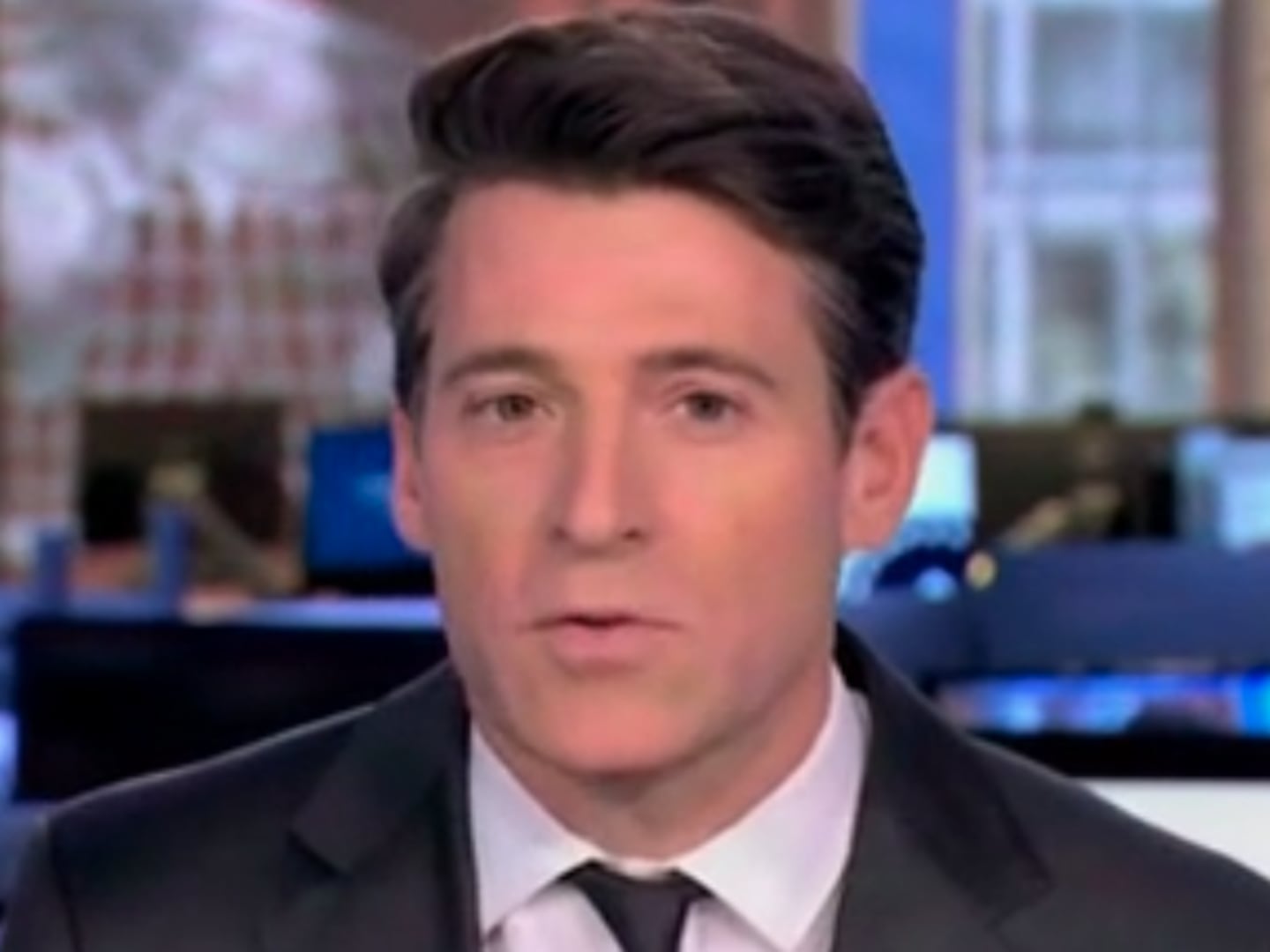In 1951, an undistinguished, frequently-drunk, first term senator named Joseph McCarthy insinuated that George Marshall, the general who had led the U.S. army during World War II, was part of a conspiracy to let China go communist. Dwight Eisenhower, the general whom Marshall had deputized to oversee the Allied invasion of Europe, considered publicly defending his former boss, but then decided not to. The reason? He feared bringing down McCarthy’s wrath upon himself.
Somewhere in hell, the former junior senator from Wisconsin must have smiled last week as he contemplated the furor over the omission of Jerusalem from the Democratic Party’s platform. In official Washington today, the more reckless and hysterical your views on Israel, the greater your power. It’s this dynamic that Benjamin Netanyahu has exploited again and again, most recently this week, to try to back the Obama administration into a corner on issues like the Palestinians and Iran. Beltway politicians, and the lobbyists paid to influence them, live in fear of being called “anti-Israel” by anyone more militant than themselves. And as the platform uproar shows, that fear isn’t confined to Democrats. It’s even shared by the American Israel Public Affairs Committee (AIPAC), an organization that is not merely a predator in the carnivorous world of politicized Israel devotion, but also, increasingly, prey.
The story of the Israel section of the Democratic platform begins with a bespectacled, wonky Georgetown professor named Colin Kahl. Having left the Obama Defense Department, Kahl had time on his hands, time he had used as a deft surrogate on national security issues for the Obama campaign. So it was no surprise when Team Obama tapped him to write the foreign-policy section of the party platform. Kohl’s boss, the platform’s overall drafter, was U.S. Ambassador to the Organization for Economic Cooperation and Development Karen Kornbluh. The man tasked with coordinating the platform process was National Platform Director Andy Grossman. Under him, charged with coordinating the foreign policy section, was an Obama campaign staffer and former CIA spokesperson named Marie Harf.
As he began drafting his share of the platform, Kahl made a fateful decision: He would focus on what the administration had actually done. If the 2008 platform had been aspirational, expressing what President Obama hoped to achieve in office, the 2012 platform would be validating: It would show Americans that Obama had achieved quite a lot. In the Israel section, therefore, Kahl emphasized U.S. security assistance to the Jewish state, an area where Obama boasts tangible accomplishments like the Iron Dome anti-rocket system. Kahl downplayed America’s stance on the Israeli-Palestinian peace process for the same reason: Obama had not gotten much done. By ignoring specific topics like the borders of a future Palestinian state and the fate of Palestinian refugees—topics that had been addressed in the 2008 platform—Kahl was following Obama himself, who rarely brought up such topics on the stump. Kahl also hoped to avoid the political firestorm that had engulfed the White House in May 2011 when Obama (unsuccessfully) laid out the parameters of a two-state deal.

Seen from this perspective, avoiding Jerusalem made sense. In 2008, the Democratic platform had said that “Jerusalem is and will remain the capital of Israel,” that “the parties have agreed that Jerusalem is a matter for final status negotiations,” and that Jerusalem “should remain an undivided city accessible to people of all faiths.” Given that the most likely outcome of such negotiations was Jerusalem’s division between Israel and a Palestinian state, those three sentences contradicted one another. But for Kahl, it hardly mattered because in office, President Obama had done nothing on the issue. Like his predecessors, he had withheld judgment on Jerusalem’s status and kept America’s embassy in Tel Aviv. Kahl emphasized the point in an August 16 article for Foreignpolicy.com in which he slammed Mitt Romney for “his comments declaring Jerusalem to be Israel's capital -- a statement at odds with the longstanding tradition of reserving judgment on the city's official status until it is resolved through Israeli-Palestinian negotiations.” In his platform draft, Kahl didn’t mention Jerusalem at all.
It was sensible and naïve: Kahl actually believed the administration’s campaign rhetoric should match its record in office. But at the party’s Platform Drafting Committee, which met in Minneapolis in late July to consider Kahl’s work, a bevy of people more attuned to the politics of the Israel issue were waiting to weigh in. The fifteen-member committee included former Congressman Robert Wexler, a trusted administration counselor on Jewish affairs and the Jewish former Massachusetts congressman Barney Frank. Among those offering public testimony was David Harris, head of the National Jewish Democratic Council. For its part, AIPAC sent four senior representatives to the Minneapolis meeting: Marvin Feuer, the group’s director of policy and government affairs, his deputy, David Gillette, AIPAC’s national political director Rob Bassin and his deputy, Marilyn Rosenthal. Feuer, Gillette and Rosenthal also attended the full platform committee meeting two weeks later in Detroit.
How the Jerusalem omission made it through this multi-layered political screening system is a matter of fierce debate. Like other interest groups, AIPAC submitted its own desired language to the platform committee, and Democratic sources concede that AIPAC’s submission contained wording about Jerusalem being Israel’s capital. But a Democratic operative insists that Feuer, and perhaps his colleagues, saw the Israel language in Kahl’s original draft. Another Democrat close to the process claims that when the full platform committee met in Detroit on August 10, an AIPAC staffer not only saw the Israel language, but offered line edits. For instance, AIPAC suggested clarifying language about Iron Dome so as not to imply that it protected Israel against missiles from Iran, a suggestion incorporated into the text. But, several Democrats involved in the process insist, AIPAC staffers never raised any concern about the omission of Jerusalem.
A source close to AIPAC vehemently denies that, saying “early reports that AIPAC had blessed this were wrong.” The source concedes that AIPAC staffers saw some of the platform language, but insists that “never in a million years did AIPAC officials think that Jerusalem, which had been in the platform for forty years, would be dropped.”
There’s no way to know for sure who’s right. It’s possible that while AIPAC staffers saw some of the platform’s Israel language, they assumed that Jerusalem was mentioned somewhere else. The source close to AIPAC suggests that the 2012 drafting process was more closed than in years past. In an interview with the Washington Post, someone with strong AIPAC ties called it “secretive.” But the hearings in both Minneapolis and Detroit were broadcast on CSPAN. And Democratic officials describe a process in which virtually every aspect of the platform was shown to some interest group or another, since satisfying interest groups is a large part of what party platforms are designed to do. Suggesting that AIPAC didn’t see the platform’s Israel section, platform committee delegate and Arab American Institute president James Zogby told Salon, is like suggesting that “NARAL didn’t look at the abortion language.” It stretches credulity, especially since the Israel section amounted to only a few hundred words, dozens of platform committee members had access to the text, and AIPAC had four, well-connected staff members on site tasked with finding out.
But perhaps the best evidence that AIPAC was satisfied with the platform’s Israel text is that when it was released publicly on the Monday night before the convention, the organization raised no objection. In fact, it did not distance itself from the platform until Wednesday, long after other, more right-wing Jewish groups had made the Jerusalem omission a major story.
So what happened? The most plausible answer is that although AIPAC representatives would have preferred that Jerusalem remain in the platform, they looked the other way. After all, Democrats were downplaying Israeli-Palestinian negotiations in general—the 2012 platform, unlike its predecessor, did not promise that the peace process would receive “the personal commitment of the President”—and so was AIPAC. The organization’s highest priority, by far, was Iran and Democrats close to the process claim that AIPAC was pleased with that section of the platform, especially its reference to “using all instruments of national power to prevent Iran from acquiring nuclear weapons.”
All this fits the general behavior of an AIPAC staff that, while sometimes sharp-elbowed, is more politically pragmatic than the organization’s critics sometimes grasp. In the words of a Jewish journalist who covered the organization for many years, AIPAC’s “lobbyists are not particularly ideological people.” One result of this pragmatism is that while AIPAC finds it easier to work with right-leaning Israeli prime ministers and American presidents than their center-left counterparts, they try to minimize conflict with whoever is in power. In the 1990s, the group’s professional staff supported the Oslo peace process, albeit tepidly. AIPAC has generally supported U.S. aid to the Palestinian Authority, and in 2010 it backed a major arms sale to Saudi Arabia.
These positions have sometimes put AIPAC at odds with more right-wing partisan Jewish groups. In 2007, on the eve of negotiations between Israeli Prime Minister Ehud Olmert and Palestinian leader Mahmoud Abbas that the Jewish right feared might lead to a divided Jerusalem, AIPAC refused to sign a letter backed by the Zionist Organization of America (ZOA) and Orthodox Union pledging support for a unified city under Israeli control. During the 2012 Republican platform drafting process, AIPAC pushed successfully—over ZOA’s objections--for language backing a Palestinian state
The pragmatism of AIPAC’s professional staff has also sparked conflict with the group’s donors. To retain its influence in Washington, AIPAC must retain good relations with the Democratic Party. But since the 1980s, the organization’s donor base has moved steadily rightward. When AIPAC publicly backed the Oslo process in the 1990s, according to former AIPAC official Keith Weissmann, it lost major funders to the ZOA. In 2007, Sheldon Adelson, a big AIPAC giver, denounced the organization for backing aid to the Palestinian Authority. At the organization’s annual policy conference that same year, a delegate called Feuer, AIPAC’s director of policy and government affairs, “weak” for not more explicitly supporting military action against Iran. In the words of one Washington Jewish insider, AIPAC’s battle “is not for the left, it’s for the right…their concern for their hegemony is [the right’s perception] that they’re too go-along to get-along.”
It is precisely this tension between AIPAC’s relationship with Democrats and its relationship with its own conservative donors that helps explain both why AIPAC may have swallowed the Democrats’ platform language, and why getting caught doing so was so frightening for the organization. On Monday night, September 3, with the convention set to begin the following day, the Republican Jewish Coalition tweeted that the newly released Democratic platform no longer included language on Jerusalem. The next morning, conservative Washington Post blogger Jennifer Rubin and the hawkish Weekly Standard both picked up the story. By lunchtime, it had spread to Politico and become a full-blown crisis, not only for the Democrats, but for AIPAC, which seemed to have confirmed its right-wing critics’ worst fears. In the words of one congressional source, AIPAC was “as screwed by the Republicans [on the platform issue] as anyone else.”
ZOA President Morton Klein says he heard from a number of outraged AIPAC donors many of whom, in his experience, “are really not aware of the positions AIPAC takes.” A well-informed Jewish politico notes that key AIPAC donors were “really exercised.” And when Democrats began using AIPAC’s involvement in the drafting process as cover, the organization, in the words of another Washington Jewish source, began “freaking out.” On Tuesday night, an AIPAC lobbyist screamed at a Democratic operative on the convention floor about the allegedly secretive nature of the platform process. According to two sources with direct knowledge of the incident, an AIPAC official confronted a Jewish Democrat who was telling reporters that the organization had approved the party’s platform language and threatened that there would be serious repercussions for his career if he continued to peddle that line. AIPAC spokesman Patrick Dorton calls that allegation “ridiculous and totally silly.”
In Charlotte, the Jerusalem furor continued to wreak havoc on Wednesday. According to Buzzfeed, Democratic officials vented their displeasure with the platform to White House Chief of Staff Jack Lew. At a training session for elected officials early Wednesday afternoon, according to a Jewish Democratic source, Massachusetts state treasurer (and former AIPAC chair) Steve Grossman screamed at Obama campaign Jewish outreach director Ira Forman over the issue. But by that time, top campaign strategists David Axelrod and David Plouffe had already informed Obama about the controversy and he had instructed them to get the Jerusalem language restored. At 3:30 on Wednesday, campaign, White House and National Security Council staff held a conference call to figure out how to make that happen. By shortly after 5 PM, delegates had voted to put the Jerusalem language (along with language about God) back into the platform, despite vocal opposition from the convention floor. The move was so rushed, Democratic sources explain, that the Obama campaign never instructed delegation heads that the president personally wanted the language restored, a move that might have avoided the embarrassing spectacle of televised delegates angrily yelling “no” when convention chairman Antonio Villaraigosa called for a voice vote on whether the language should be added in.
All this because Democrats had the audacity to write a platform that did not publicly reject the position on Jerusalem held by every American administration since the founding of the Jewish state. At the heart of this sordid tale lies an irony. More than any other single organization, AIPAC has helped create a climate in which being deemed insufficiently “pro-Israel” is almost as dangerous to a politicians’ career as being deemed insufficiently “anti-communist” was in the early 1950s. But this very climate gives politicians and activists an incentive to keep raising the “pro-Israel” bar higher and higher so as to gain an advantage over their political foes. As the definition of “pro-Israel” becomes more extreme, it becomes harder and harder to reconcile with a commitment to Palestinian statehood, America’s standing in the Arab and Muslim world or even the simple realities of the foreign policy-making process. The people least fettered by those concerns—those least concerned about international opinion and Palestinian dignity—thus wield power over everyone else since they can keep establishing new “pro-Israel” litmus tests that their political foes find difficult to meet. It’s hardly news that this dynamic breeds terror inside the Democratic Party, especially around election time. What the Jerusalem platform flap reveals is the terror it can breed inside AIPAC itself.
In the early 1950s, when Joseph McCarthy made going to war for Chiang Kai-Shek the litmus test of being anti-communist, Dwight Eisenhower wouldn’t defend George Marshall against the charge. Last week, when the Republican Jewish Coalition made breaking with more than 60 years of U.S. policy on Jerusalem the test of being pro-Israel, AIPAC wouldn’t defend the Democratic Party. Sometime soon, when the Republican right raises some new, hysterical test of fealty to the Jewish state, we may all find ourselves asking a different question: Who will defend AIPAC?





